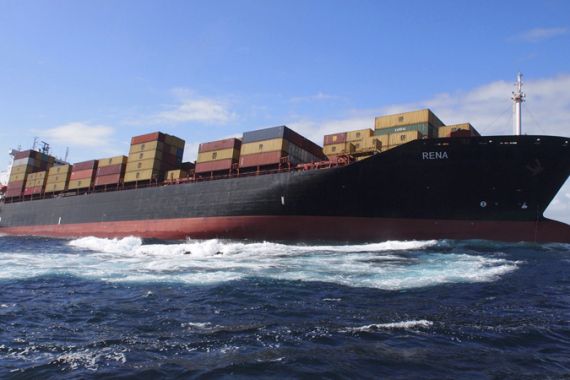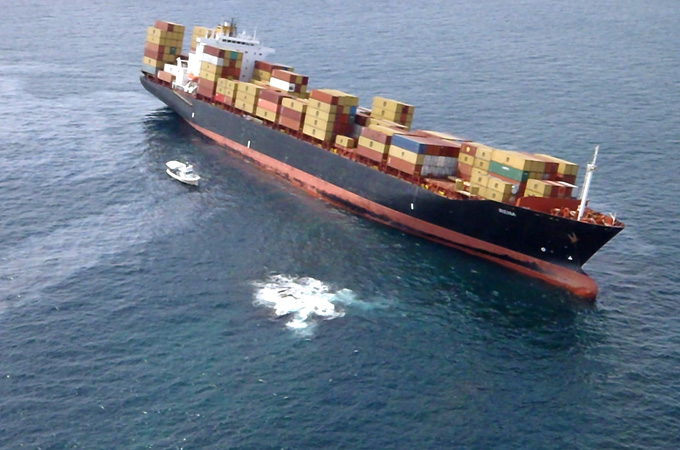New Zealand seeks answers over oil spill
John Key says there is no excuse for cargo ship running aground on coral reef, threatening environmental disaster.

 |
| At least 20 to 30 tonnes of oil have leaked into the sea since the Rena ran aground on Wednesday [EPA] |
New Zealand’s prime minister has called for an investigation into how a cargo ship ran aground on a coral reef off the country’s North Island, leaking oil and threatening an environmental disaster.
Salvage workers on Sunday began an operation to remove an estimated 1,500 tonnes of heavy fuel oil from the stricken Rena amid fears bad weather could be on the way.
Keep reading
list of 4 itemsTurtles swimming to extinction in Malaysia as male hatchlings feel heat
Could shipping containers be the answer to Ghana’s housing crisis?
Thousands protest against over-tourism in Spain’s Canary Islands
The ship, which is at an 11-degree list, suffered extensive damage in the accident last Wednesday and has leaked 20 to 30 tonnes of oil into the sea, according to authorities.
John Key, the prime minister, arriving in the city of Tauranga in the Bay of Plenty to assess the crisis, said there was no excuse for the accident, which occurred on the Astrolabe reef 22kms off the coast of the wildlife-rich Bay of Plenty.
“People know about the reef, and for [the ship] to plough into it for no particular reason, at night, in calm waters, tells you something terrible has gone wrong and we need to understand why,” he told reporters.
His visit came as two barges began scooping up spilled oil, the first time response teams have been able to get out on the water and attack the slick.
Al Jazeera’s Rachel Morton reporting from Tauranga, said oil would be pumped from the 47,000-tonne ship Rena on to another vessel moored adjacent to it.
Rena‘s containers had been secured with extra lashing as a precaution and Maritime New Zealand (MNZ) said officials would work “around the clock” to remove the oil before the worst of the weather hit.
“It is expected to take about two days to remove oil, all things going well,” said MNZ.
Weather-related delays
Salvage workers had previously been limited to spraying chemical dispersants from aircraft and helping affected wildlife as they waited for specialist equipment to arrive from elsewhere in New Zealand and Australia.
Conditions were calm on Sunday morning as oil recovery teams headed out to collect oil spilled on the surface, but forecasters said winds were expected to increase by Monday, creating sea swells that would make transferring the fuel even more difficult and dangerous.
Authorities say the rest of the fuel must be removed before the cargo stacked on the deck can be unloaded and attempts made to refloat the ship.
The ship was carrying 2,171 loaded containers, some containing pollutants including paint and grease, when it crashed into the reef last Wednesday.